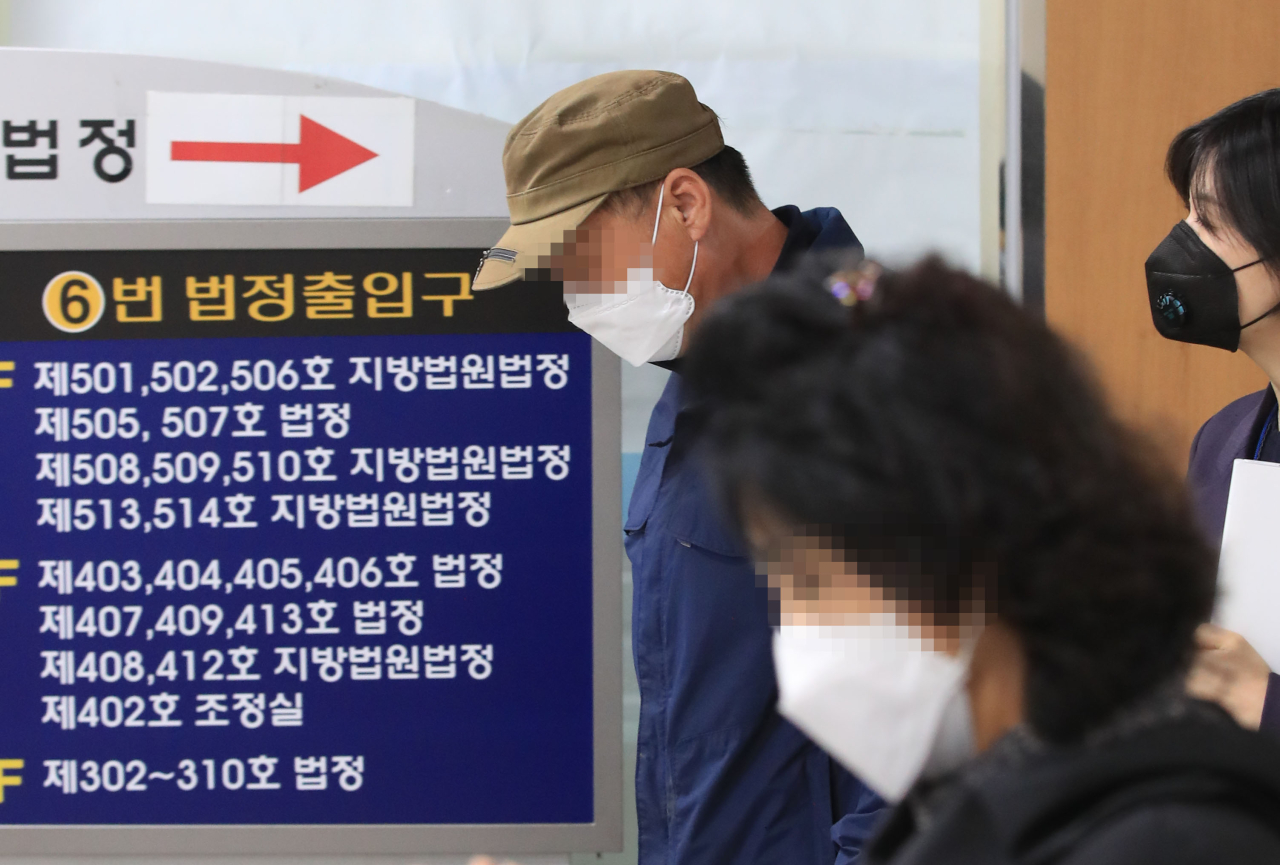Son Jong-woo, a South Korean national who operated the world’s largest child pornography website and is wanted by US authorities, demanded guarantees at his extradition hearing Tuesday that he will not face charges in the US for crimes he has been convicted of here.
The 24-year-old’s defense made the argument during a hearing on his extradition to the US at the Seoul High Court. The court is scheduled to reach a decision in the next two months on the US Justice Department’s request, which was made last year.
The former operator of the Welcome to Video site has been detained even after completing his 18-month prison sentence on April 27, as he undergoes the extradition process. The site, according to the US Justice Department, contained more than 250,000 videos, or around 8 terabytes of data, making it “the largest child sexual exploitation market by volume of content.”
Son was arrested here in March 2018 following a joint investigation among the Korean, US and British authorities. The same year, he was sentenced by a local court to 18 months in prison for producing and circulating images of child sexual abuse.
A US federal grand jury indicted Son in 2018 on a total of nine charges, including producing, advertising and distributing child pornography, as well as conspiracy and money laundering.
Due to South Korea’s double jeopardy laws, only charges related to money laundering were brought into consideration for the extradition proceedings.
Son is suspected of collecting 400 million won in virtual currency for providing videos of child sexual exploitation to some 4,000 people on the dark web over a period of two years and eight months starting in July 2015.
During the hearing, Son’s defense asked for guarantees that Son will only be punished for charges related to money laundering, and remain clear of other charges, for which he was already punished in South Korea.
The prosecution said South Korea’s extradition treaty with the United States assures that Son will not face the remaining charges when extradited.
In an apparent bid to block Son’s extradition and the possibility of facing harsher punishment in the US, Son’s father filed a complaint against his son with the prosecution earlier this month for violation of the law on concealing criminal proceeds.
The local court has authority to deny an extradition request if a criminal in question is a South Korean national, is undergoing court proceedings or is serving his or her term. South Korea has signed extradition cooperation agreements with a total of 77 countries since signing the first one with Australia in 1991.
By having Son tried in South Korean court, his father is looking to have his son avoid facing the same charges in the United States, in accordance with double jeopardy laws.
The father also appealed to the court last month that it would be “too harsh” to extradite him, and that his son would not be able to bear life in a US prison, as he is “not heinous by nature.”
Under US federal law, money laundering offenders face up to 20 years in prison for laundering $500,000 or more, and up to 10 years for less than $500,000. In South Korea, conviction for concealing criminal proceeds results in jail term of not more than five years, or a fine not exceeding 30 million won.
The father wrote in the complaint that his son used his personal information without his consent to open a virtual currency account and used it to transact and conceal criminal proceeds. He added that Son also defamed his grandmother by paying her hospital fees with money made from his criminal activities.
The Seoul High Court decided in the Tuesday hearing to open another session on June 16 and reach the final decision then. If extradition is approved and later signed by the Justice Minister, US officials have a month to come to South Korea and bring Son with them.
By Ko Jun-tae (
ko.juntae@heraldcorp.com)







![[Weekender] Korea's traditional sauce culture gains global recognition](http://res.heraldm.com/phpwas/restmb_idxmake.php?idx=644&simg=/content/image/2024/11/21/20241121050153_0.jpg)
